Werner Krauß
출생 : 1884-06-23, Gestungshausen,Germany
사망 : 1959-10-20
약력
Werner Johannes Krauss (Krauß in German; 23 June 1884 – 20 October 1959) was a German stage and film actor. Krauss dominated the German stage of the early 20th century. However, his participation in the antisemitic propaganda film Jud Süß and his collaboration with the Nazis made him a controversial figure.

Death (archive footage)
Based on archive holdings from nine decades, director Hannes Rossacher has created a complete Jedermann performance and thus a unique cultural-historical puzzle from Alexander Moissi to Nicholas Ofczarek. The success story of the phenomenon "Everyman" is told in an unprecedented way.
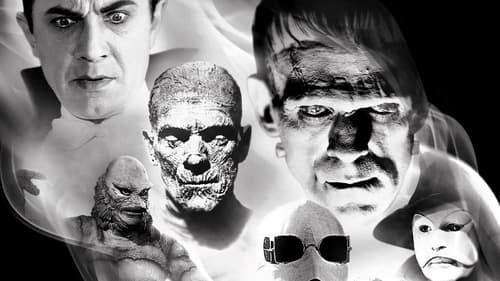
(archive footage)
A documentary about the era of classic monster movies that were made at Universal Studios during the 1930s and 1940s.

Gesandter des Vatikans

Wilhelm Hartmann

Lenura / Lenoir
The Falling Star (German: Der Fallende Stern) is a 1950 West German drama film directed by Harald Braun. It was entered into the 1951 Cannes Film Festival.
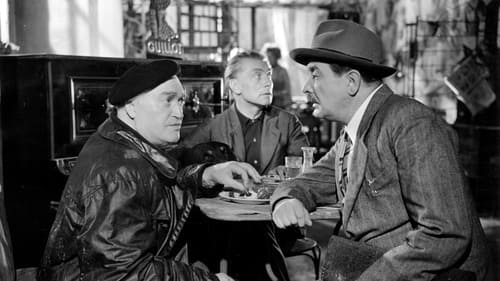
Dr. Schmidt
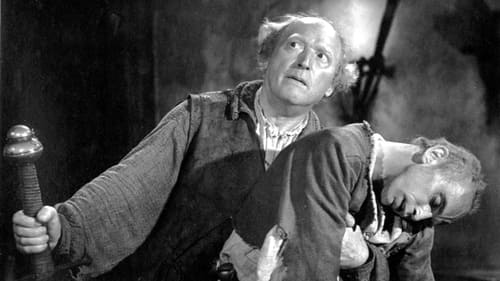
Paracelsus
의사이자 연금술사로서 마술과 과학의 경계선을 넘나들던 인물이자 의학과 화학이라는 학문의 기초를 닦은 스위스 출신의 인물 파라셀수스의 삶.

Geheimrat von Holstein
German chancellor Otto von Bismarck promises the dying emperor Wilhelm I. to be loyal to his grandson. But the gap between young Kaiser Wilhelm II. and old Bismarck is rapidly widening. It soon appears that an era is coming to an end.

Justus Rottwinkel

Katasteramtsrat Reinhold Dörensen
On New Year′s Eve 1871 Annelie is born – 15 minutes too late, since her parents had calculated her birth to be exactly at midnight. These 15 minutes will again and again become the girl′s fate.
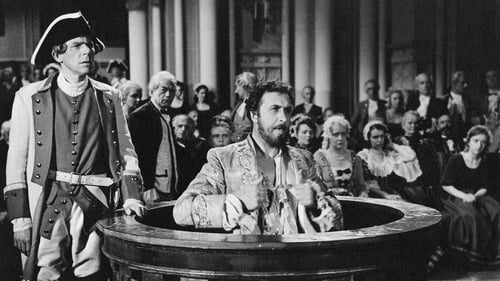
Rabbi Loew
Nazi historical drama about Duke Karl Alexander of Württemberg and his treasurer Süß Oppenheimer.

Geheimrat Rudolf Virchow
Country Dr. Robert Koch is desperate: a tuberculosis epidemic is decimating the children in his district and no one is able to do anything about it. Every fourth child is already sick and the parents must helplessly watch as their young ones die. Now Koch is undertaking to find the cause of the tuberculosis --- something he has already been working on for years --- which has been causing this plague of illness. His work is made more difficult by envy; for example, that of his teacher, who was wounded defending his honor. But his greatest obstacle is the famous Berliner scientist and Reichstag deputy, Privy Councilor Rudolf Virchow: He is extraordinarily skeptical of Koch's theory, that the cause for tuberculosis is a bacteria.


Friedrich Mitterer
In this convoluted melodrama, an elderly thespian falls for a rising young starlet. He admits his love for her and then announces that he will retire. The young woman pretends she loves him too, but her real motive is to give her struggling lover, also an aspiring actor, a break.

Napoleon

Heinrich Martin

General Ludwig Yorck von Wartenburg
The story of General Yorck von Wartenburg, a commander in the army of Prussian King Wilhelm, who defied the king's orders for the Prussian army to join Napoleon in his invason of Russia.

Napoleon
Napoleon at Saint Helena (German: Napoleon auf Sankt Helena) is a 1929 German silent historical film directed by Lupu Pick and starring Werner Krauss, Hanna Ralph and Albert Bassermann. The film depicts the final years of Napoleon between 1815 and 1821 during his period of exile on the British Atlantic island of Saint Helena following his defeat at Waterloo.

Botto
Botto the Clown is in love with the much younger Blanche but she is in love with the handsome daredevil acrobate Andre.

The Merry Farmer is based on the 1907 operetta of the same name.

Theophil Schimmelpfenning

Theobald Maske
A woman loses her undergarments in public. Chaos ensues.

Willibald Cooks
Tamara becomes addicted to cocaine but hides from her daughter by moving in with the dealer Mangol. The father tells his daughter that her mother has died, but years later the daughter rediscovers her mother appearing on stage. Mangol pursues the daughter, but Tamara intervenes before dying amongst family members.

Ibrahim Hulam

Fürst Colalto

Ortspolizist Suka
Directed by Aleksandr Razumnyj.

A non-access 35 mm print is held by Filmarchiv Austria.
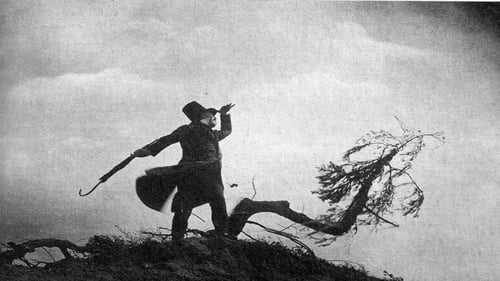
Scapinelli, Wucherer
For Balduin, going out to beer parties with his fellow students and fighting out disputes at the tip of the sword have lost their charms. He wants to find love; but how would he, a penniless student, ever dare looking up to any woman worth of loving? Absorbed in his dreary thoughts and indifferent to the advances of Lyduschka, Balduin is unexpectedly offered a fortune by the mysterious money-lender Scapinelli - but on a strange condition...
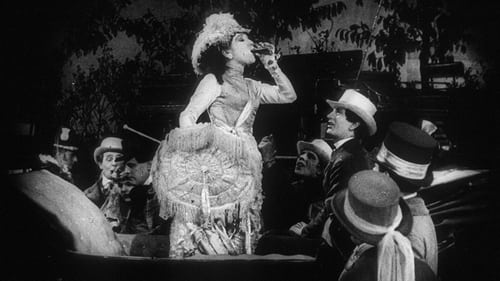
Count Muffat
르누아르가 존경해마지 않았던 에밀 졸라의 원작 소설을 각색한 장편 무성영화. 르누아르의 아내인 카트린 에슬랭이 주인공 나나 역을 맡았으며, "칼리가리 박사의 밀실"의 베르너 크라우스가 상대역인 무파 백작 역을 맡았다. 원작과 배우의 지명도에 힘입어 상업적 성공을 확신한 르누아르는 대규모 예산을 투여하여 를 제작했지만, 결과적으로는 흥행에 참패, 아버지의 그림을 팔아 청구서를 갚아야만 했다. 하지만 "나나"의 서정성, 그리고 희극과 비극이 교묘하게 어우러진 분위기는 많은 비평가들의 찬사를 받았다.
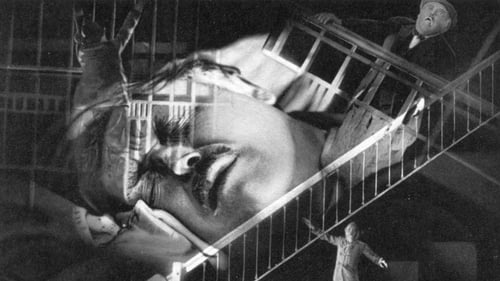
Martin Fellman
Werner Krauss, who had played the deranged Dr. Caligari six years earlier, stars as a scientist who is tormented by an irrational fear of knives and the irresistible compulsion to murder his wife. Driven to the brink of madness by fantastic nightmares (designed by Ernö Metzner and photographed by Guido Seeber in a brilliant mix of expressionism and surrealism), he encounters a psychoanalyst who offers to treat the perplexing malady.
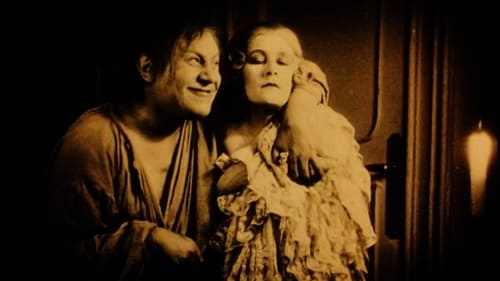
Herr Orgon
A young man shows his millionaire grandfather a film based on Molière's play "Tartuffe" in order to expose the old man's hypocritical governess who covets the young man's inheritance.

Der Idiot
Directed by Martin Berger.

Anton Zöllner

〈버라이어티〉는 하층 계급 인물의 개인적인 심리를 주로 다루고 있는 ‘실내극영화’와 남자 주인공이 도시의 유혹에 빠져 가정으로부터 멀어지는 모습을 그린 ‘거리영화’의 특징을 모두 지니고 있다. 널리 알려진 무르나우의 〈마지막 웃음〉(1924)에 비해 덜 알려져 있지만, 삼각관계를 이루는 공중곡예사들의 멜로드라마라는 특이한 소재를 다루었으며, 20년대 독일영화에서 가장 뛰어난 기술적∙미학적 성취를 이룬 영화라고 할 수 있다. 칼 프로인트의 카메라는 인물의 사랑, 질투와 같은 심리를 파고들기 위해 자유로운 움직임과 다양한 앵글을 구사하고, 주관적인 시점과 결합된 움직임은 시.공간적 제약을 뛰어넘어 다양한 영화적 시각을 제공함으로써 현실적인 이야기에 스며든 내면을 시각화한다. 공중곡예 장면은 그 자체로 스펙터클을 경험하게 하는 역동적인 힘이 있으며, 뒤퐁의 섬세한 감정 연출과 정교한 편집도 뛰어난 경지를 보여준다. 이 영화의 성공으로 뒤퐁과 프로인트는 할리우드로 이주했고 이후 누아르 영화에 큰 영향을 미쳤다.
(부산시네마센터 2011 - [개관영화제]백화열전)

Arent Bergh

Viehhändler engros

Josef Geiringer
In 1921, we follow two women - Marie and Grete - from the same poor Viennese neighborhood, as they try to better the lives of themselves and their families during the period of Austrian postwar hyperinflation.

Jack the Ripper / Spring-Heeled Jack
독일 표현주의 영화의 대표작 중 한 작품으로 세 밀랍인형- 칼리프(에밀 야닝스), 이반 대제(콘라트 파이트), 잭 더 리퍼(베르너 크라우스)-의 이야기로 구성되었다. 볼로냐 아카이브에서 복원한 프린트로 요하임 베렌즈의 피아노 연주로 상영된다. (한국영상자료원 2010 - 영화적 체험 Cinematic Experience 2)

Himself
The only surviving excerpt of a documentary on film production in Weimar Germany, featuring the different personalities of several famous directors of the era at work on the set including Fritz Lang, Robert Wiene, and E.A. Dupont.

Soldan
A Saracen sultan's disguised son loves an amnesiac Moslem princess.

Pontius Pilatus
From the director of Cabinet of Dr. Caligari, this is the Passion embedded in a contemporary story. An anarchist jailed for an attempted assassination is told the Passion story by the prison chaplain.

a silent movie by Robert Wiene
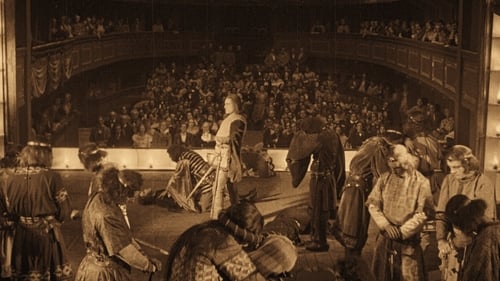
Nathan, der Professor
Baruch Mayer, son of an orthodox rabbi from a poor shtetl in Galizia, decides to break with the family tradition and leave the shtetl to become an actor.

Dr. Jüttner
Prince Karl Heinz enjoys his carefree life as a student in Heidelberg. He falls in love with the beautiful Käthe and everything is fine and dandy till his father is reported very ill.
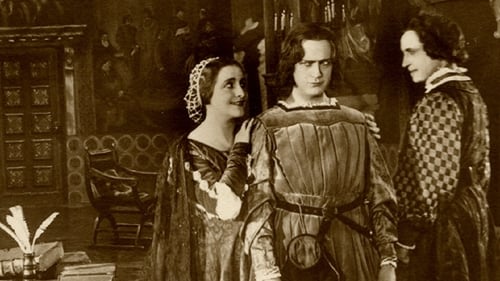
Shylock (Mordecai)
The film "Der Kaufmann von Venedig" ( The Jew Of Mestri ) was written, produced and directed by Peter Paul Felner in the silent year of 1923 and is a free adaptation of "Merchant of Venice" written by Herr William Shakespeare. It is an elegant and expensive German film production that was shot on location in beautiful and decadent Venice with some of the most important Teutonic actors of the time: Henny Porten, Harry Liedtke und Werner Krauss and even the mysterious Max Schreck.

Emil Raffke
"Raffke" was a war profiteer, shifter, the white-collar criminal, who came to wealth with not very clean methods in a short time and also likes to show it. And this film tells the story of Raffke's daughter Lilli, who, instead of marrying the Baron chosen by the father of vanity, marries a simple employee who is about to perish.

Svetelenz
On the surface a straightforward tale of the search for a buried treasure, the film is a textbook example of German expressionism, with the passions of the protagonists conveyed as much through symbolism as action.

Marc Muradock
A melodrama about a virtuous wife unjustly abandoned by her husband, who get him back with the help of a Hindu mystic.

Nathan
Silent movie adaptation of Lessing's play. Set in Jerusalem during the Third Crusade, it describes how the wise Jewish merchant Nathan, the enlightened sultan Saladin and the (initially anonymous) Templar bridge their gaps between Judaism, Islam and Christianity.

Der alte Rog / Old Rog
The film follows tells the story of a struggle over a plot of petroleum-rich land.
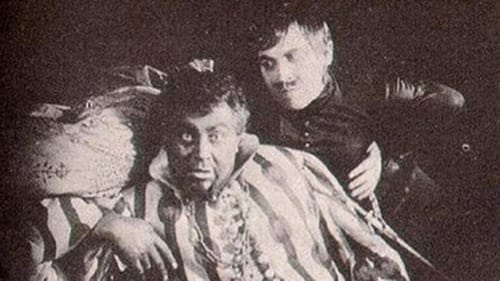
Iago
Even without the benefit of sound, the 1922 German adaptation of Othello seems more operatic than Shakespearean. This may be due to the casting of Emil Jannings, to whom restraint and subtlety were strangers. Werner Krauss, of Cabinet of Dr. Caligari fame, is on hand as the duplicitous Iago. Appearing as the unfortunate Desdemona is Lea Von Lenkeffy, better known as Lya de Putti. Produced on an elaborate scale, Othello may not be true to the letter of Shakespeare, but is undeniably a smorgasbord of visual delights.

Philipp Hogger

Lord William Hamilton
The married Lady Emma Hamilton has an ill fated romance with Admiral Horatio Nelson.

Walter
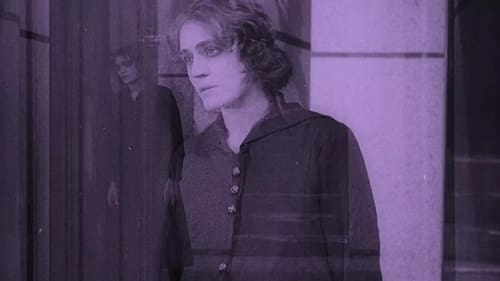
Bahnwärter
Scherben is about the everyday lives of a railway trackman, his wife and daughter in a remote, isolated house in a winter landscape, Mayer and Pick introduce increasingly stronger disturbances into their daily routines.

Robespierre
At the height of Reign of Terror Maximilien Robespierre orchestrates the trial and execution of several of his fellow leading French revolutionaries including Georges Danton.

Escape from the Golden Dungeon is the second part of the two-part silent movie Christian Wahnschaffe.

Harlander
Harlander, a media mogul and war profiteer, has been told that he has six months before his sanity will leave him completely. He hires a young nurse, and decides to spend all his money before his six months are up.

Tatjana's father

Ferryman
An abandoned baby is saved by a river god. Now aged 20, she yearns to see the world outside the water.
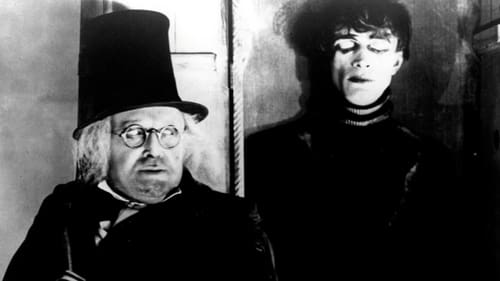
Dr. Caligari
북독일의 시골에서 온 칼리가리 박사는 체자레라고 하는 남자에게 최면술을 걸어 예언자 행세를 하며 동네를 돌게 한다.

Premier
After her brother is sent to Siberia, Sonja heads to Moscow to participate in a revolution.

The Cripple
In this apparently lost film, a beautiful dancer's sexual allure is used by an evil cripple to entice men to their deaths. Falling in love with one of the potential victims, she is told by the cripple that he will set her free if her lover, actually a murderer himself, survives and escapes a bizarre labyrinthe which runs beneath the cripple's house.

Der alte Bernd
An adaptation of the Gerhart Hauptmann play of the same name. A young farmer's daughter is used and abused by the men in her life.

Dr. Remus

Dr. Wenning
The daughter of a revolutionary runs away with a married prince.

Mazeppa
The film tells the story of Ivan Mazeppa, a Ukrainian page at the Polish court who has an affair with the young wife of a much older count. Outraged when he learns of the incident, the nobleman has Mazeppa tied naked to a wild horse which is then released into the wilderness. The bulk of the poem describes the long hazardous journey during which Mazeppa almost dies twice but ultimately survives and returns to his native Ukraine.

Mann
Hedwig and Lola, two sisters of opposite temperaments, have their lives upended in when Lola decides to pursue prostitution and Hedwig is forced into it.

Nung-Tschang
In China, Professor Gesellius has completed his long research on the many uses of opium. When he is about to return home, he hears about a special variety that produces fabulous sensations because of the way it is made, but can also cause the total destruction of the mind and body of the person who consumes it.

Philipp Galen
Dida Ibsen, daughter of impoverished farmers, has, according to her father's will, to marry the main creditor. But she refuses and decides to live with a married man as a mistress, till he gets his divorce. In the town she opens a restaurant with the money of her wealthy lover, from whom she soon gets pregnant, but their dreams of marriage fail, his wife refuses the divorce. After a while, she decides to marry one of the regular guests at her restaurant, van Galen, who spent quite some time in the tropics and because of this is at the brink of madness. Shortly after the marriage his condition worsens and life becomes hell for Dida.

Meinert

Waldemar Gorsky
A tyrannical landowner terrorizes his wife and seduces the daughter of one of his employees.

A tinted silent film about a murder plot.

The artist
An extremely jealous artist slips into a monkey costume and kills all those men who come too close to his wife, another artist.

Death
Based on several medieval mystery plays, including the late 15th-century English morality play "Everyman". The premise is that the good and evil deeds of one's life will be tallied by God after death, as in a ledger book. The drama is the allegorical accounting of the life of Everyman, who represents all mankind.

Georg Bertrand, a gambling addict and the son of a wealthy landowner, is kicked out of his family home. The director of a travelling circus takes him in. In time, Georg marries the director's daughter and himself becomes the director. Georg's brother visits the circus and recognizes him. Georg must now decide whether to stay with the circus or return to the family that kicked him out.

Conte Dapertutto
This movie, directed by Richard Oswald, is based on the operetta "Les contes de Hoffmann" by Jacques Offenbach (1819-1880), which is a genial musical potpourri from various short stories and novels by the Prussian writer, composer, painter, lawyer and judge E.T.A. Hoffmann (1776-1822). While Hoffmann's literary work was longtime considered to be merely fantastical, it was finally researched, in the last years, according to its metaphysical background. Characteristic for Hoffmann's work is his life-long fight against rationalism and for the revelation of nature morte, culminating mostly in carnival-like scenes anticipating literary techniques only described in the works of Bachtin and Bachelard.




















